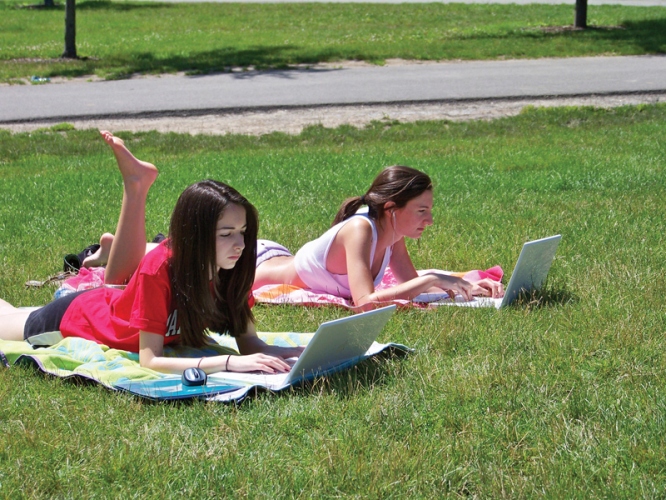The consistency of maintaining one’s health is an important choice that every student must make. As psychologist Carl Jung said: I am not what happened to me, I am what I choose to become.

Fr. Beniz Anthony Gomes
Dorothea Orem defines self-care as, “those activities performed independently by an individual to promote and maintain personal well-being throughout life”. Students are indeed juggling with numerous roles such as -parents, head of households, pastors, caregivers for aging parents, employment, and social commitment. And because of the high demands in fulfilling their roles which sometimes results in high levels of stress. Daily activities of students often involve attending online classes, reading texts, and completing assignments which could affect their emotional and mental well-being.
Studies have proven that self-care brings well-being outcomes; helps in the reduction of stress and burnout and increases professional performance. On the other hand, poor management of self-care results in having a negative impact on the academic performance, clinical skills, and personal well-being of students.
The setting of ‘SMART’ (S-Specific; M- Measurable; A-Achievable; R-Realistic; and T- Time-bound) goals towards self-care is the need of the hour.
Based on the guidelines as per Dr. Roger Walsh (2011), the survey results are as follows:
• Physical exercise
This is a treatment for a variety of physical as well as psychiatric disorders. This calls for self-discipline. Regular one hour of walking, running, cycling or gymnastics would have a long-term self-benefit on one's well-being.
• Nutrition and diet
We miss discipline when it comes to eating. Evidence shows the importance of nutrition on mental health –multicolored fruits and vegetables (a rainbow diet), pescovegetarian diet (some fish), and reduction of excessive calories.
• Nature
Relaxing at the beach, watching a stream, gardening, looking after an infant, surfing, a walk through the forest, etc. has therapeutic benefits that enhance the emotional, cognitive, attentional, spiritual, and subjective well-being of students.
• Religious and spiritual involvement
Attending rituals as a family in holy places, family rosary, prayer meetings, eucharistic adoration collaborators, prayer partners, member of vocation club, online evangelization, and bible study groups have a positive impact on well-being.
• Mindfulness
Being consciously aware of here-and-now. Informal practices like mindful walk, mindful reading, mindful meal, mindful rearranging of one’s closet, and mindful conversation with family and friends. Formal practices like mindful meditation and mindful breathing will enhance mental health.
• Managing digital immersion
Media plays an important role nowadays helping in numerous ways in the academic field, and also to develop psychological and social skills in students.
On the other hand, it can also lead to ‘technopathologies’- like media related anxiety disorder, Post Traumatic Stress Disorder in relation to social media sites exhibiting problematic and prejudiced themes through mails, photos, and video posts, porn addiction, online shopping, fishing out online friends, and online bullying. The psychological effects would be to suffer from attention deficit traits, cognition- digital fog and techno-brain burnout, overload- data smog, and frazzling.
• Relationship
Acquisition of friends is wisdom to ensure happiness throughout students’ whole life. Hence, good relationships are central to both physical and mental well-being. Develop friendship not only with humans but creation as well.
• Recreation
Creating positive emotions through fun activities does have a transformative value in becoming creative, knowledgeable, resilient, socially integrated, and healthy individuals. Through behavioral activities, students become creative in their ways. Find your signature strength- hobbies, talents, and cultivate good qualities/virtues.
• Relaxation and stress management
Doing nothing is better than being busy in doing nothing. Find time to savour and cherish life. Proper sleep, yoga, reading, being in company with our loved ones, sitting and watching a movie together, listening to music, etc. are healthy coping behaviors.
• Contribution and service
It is regarded as a virtue that can benefit both giver and receiver. Altruism is said to reduce unhealthy mental qualities/practices such as greed, jealousy, and egocentricity in students while having a positive outlook enhances healthy qualities such as mutual love, joy, peace, understanding, and generosity. Parting with possessions and clothes, praying for the dead, driving someone to the hospital, casual phone call or dropping an email, family bonding, helping colleagues in assignments will create a positive attitude towards others.
Teachers and professionals involved in training students, both in educational and clinical settings need to infuse effective stress management and self-care behaviors before the students join the workforce.
One cannot be a good practitioner tomorrow unless one first learned to care for themselves today.
(The writer is a doctoral student in counseling psychology at De Lasalle University, Manila
Philippines)